Monthly Journal
June 2024
International Press Review
The most relevant events of the area through international sources
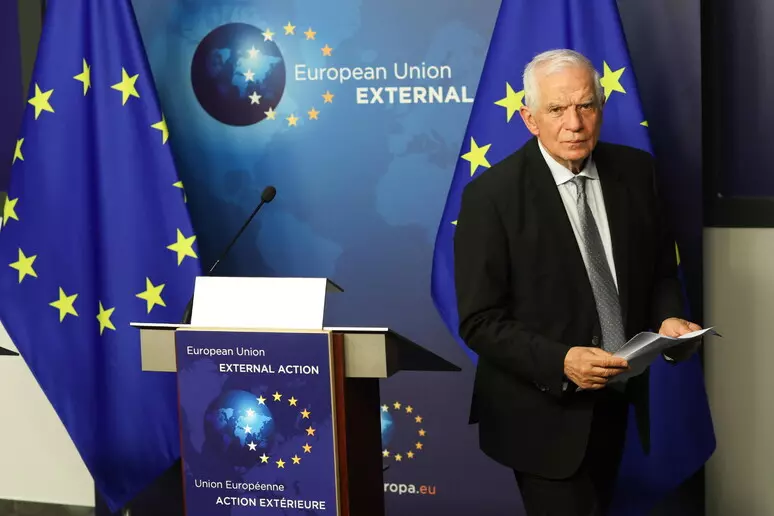
Serbia-Kosovo talks fail again at the latest meeting in Brussels
Radio Free Europe
A European Union effort to revive stalled negotiations between Serbia and Kosovo failed at the end of June, as the Serbian president and the Kosovo prime minister did not meet as planned and did not reach any kind of agreement. The sit-down, probably the last facilitated by the High Representative Josep Borrell, occurred nearly a year after their last meeting, following multiple unsuccessful negotiation rounds. Serbia’s President Aleksandar Vucic and Kosovo’s Prime Minister Albin Kurti held separate meetings with EU representatives. However, EU foreign affairs chief Borrell reported no progress, stating, “This time, it has not been a trilateral meeting.” Talks aimed at normalising ties essentially collapsed last year, and a boost is expected only after the new European Commission will be in power.
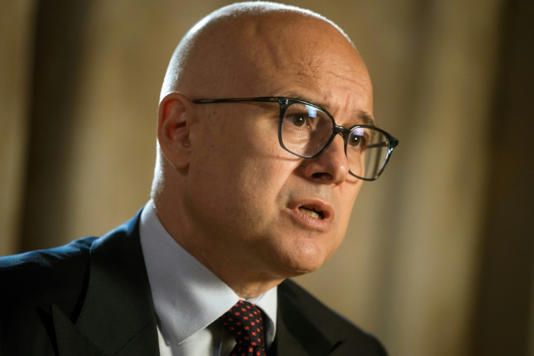
Serbia ready to make “compromises” on Kosovo
AFP
Serbia’s new government is prepared to make “compromises” over Kosovo, the new Serbian Prime Minister Milos Vucevic told AFP. “We are ready to make agreements and compromises,” which mean neither side should end up as “an absolute winner or an absolute loser,” said Vucevic, who took office in May following a massive victory at the polls late last year by his ruling Serbian Progressive Party. “Anything else is not and cannot have long-term sustainability,” Vucevic stated, implicitly excluding the option of recognising Kosovo’s independence.
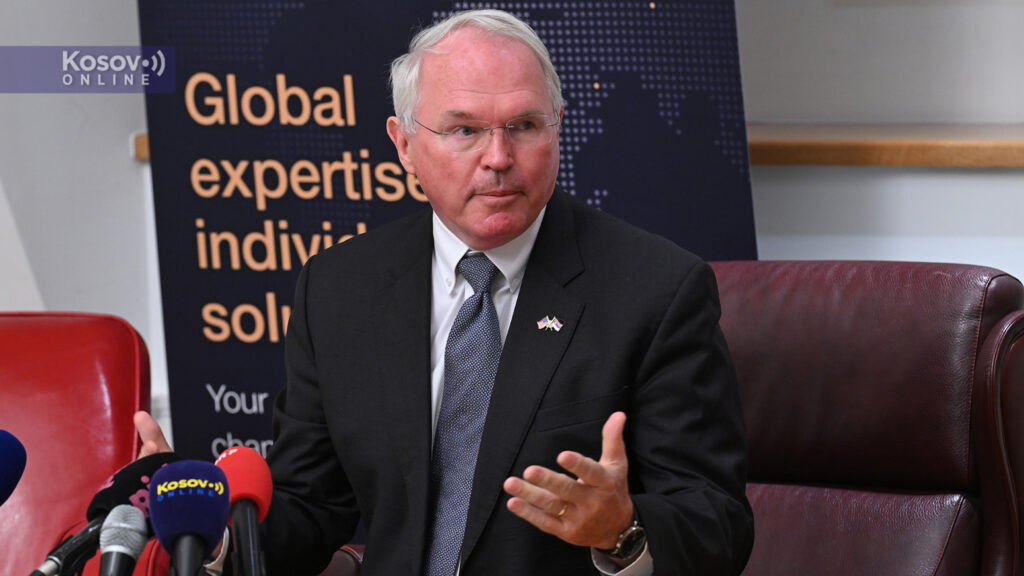
Belgrade will not be required to recognise Pristina: US Ambassador
NIN
US Ambassador to Belgrade, Christopher Hill, stated that he is convinced that the EU will not require Serbia to recognise Kosovo as a condition for joining the bloc. “I think” that the EU said “very clearly that there are members of the European Union that do not recognise Kosovo, so the real issue is to try and achieve the normalisation where those borders will not be the borders that divide, but the borders that unite, the borders that really bring people together, and I hope that people can understand what we are really saying here about the future,” Hill told the Serbian magazine NIN.
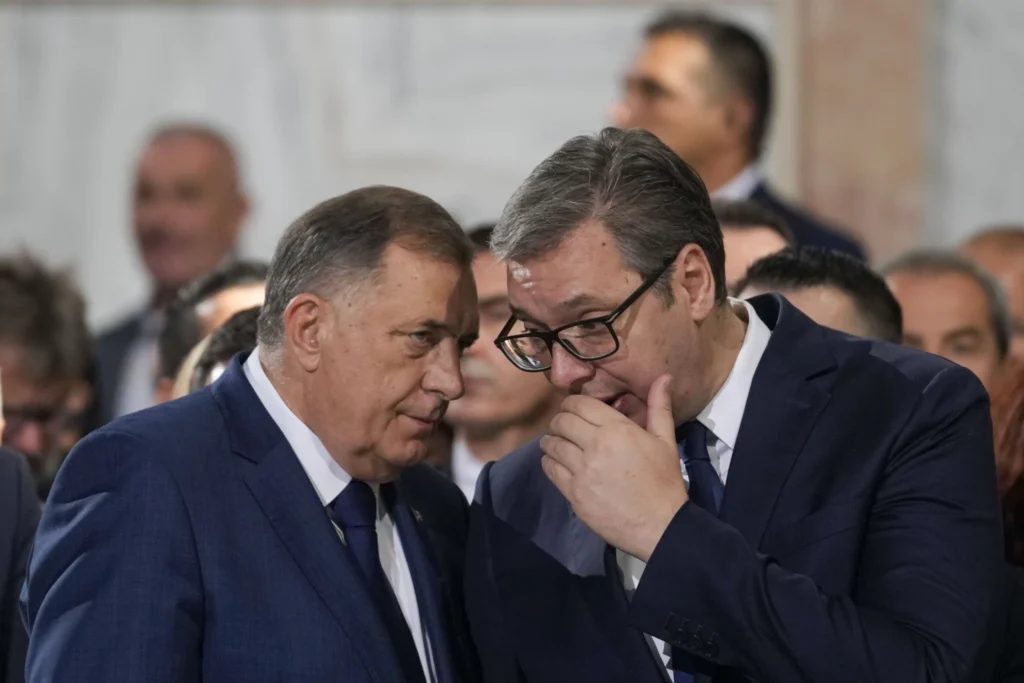
Dodik and Vucic call for Serbian unity at Belgrade’s nationalist rally
The Associated Press
Serbia’s president Vucic and the Bosnian Serb separatist leader Dodik organised a large nationalist gathering in Belgrade, advocating for the “unity” of all Serbs in the region, raising concerns in neighbouring states. The “All-Serb Assembly” with the slogan “One People, One Gathering” brought together thousands of Bosnian Serbs and participants from Montenegro and North Macedonia. The meeting followed the UN General Assembly’s designation of 11th of July as an International Day of Reflection on the 1995 Srebrenica genocide, which Serbia and Bosnian Serbs vehemently opposed. A resolution adopted at the assembly in Belgrade asserted that Serbs are a single entity with a rich tradition, with common rights to be defended.
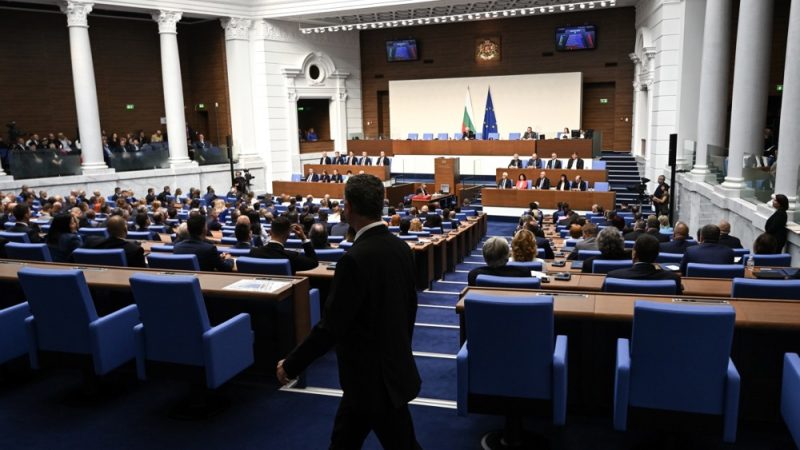
Bulgaria might head to another early election
Euractiv
Bulgaria is heading for its seventh general election in three years after former Prime Minister Boyko Borisov’s ruling GERB (EPP) party failed to secure a strong parliamentary majority in the June elections. Although GERB won the June 9 parliamentary vote with 24,71%, it did not secure enough seats in the 240-seat parliament to form a government. Borisov’s party expected support from “There is Such a People” (ITN) led by former TV presenter Slavi Trifonov, in addition to backing from the Turkish minority party Movement for Rights and Freedoms (DPS). However, Trifonov announced his party would not back the GERB-DPS proposed government.
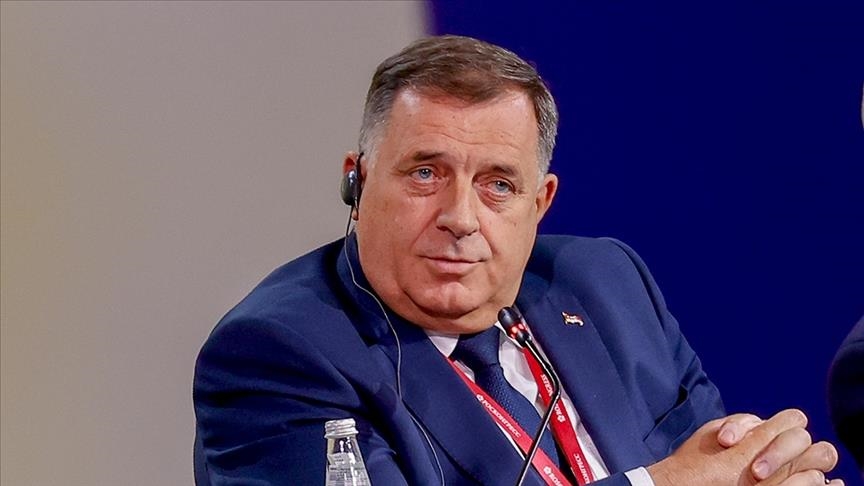
Dodik threatens secession speaking from Russia
TASS
Republika Srpska will hold a referendum for the independence from Bosnia and Herzegovina, with the date to be still determined, said the entity’s President Milorad Dodik to the Russian news agency TASS. “There is a decision to proceed, but a specific day has not yet been set,” he stated in St. Petersburg. Dodik also argued that remaining within Bosnia and Herzegovina equates to a loss of time and opportunities for Republika Srpska. The pro-Russian and nationalist leader also clarified that he does not intend to create instability, proposing Bosnia and Herzegovina terminate the Dayton Agreement, and moving towards independence.
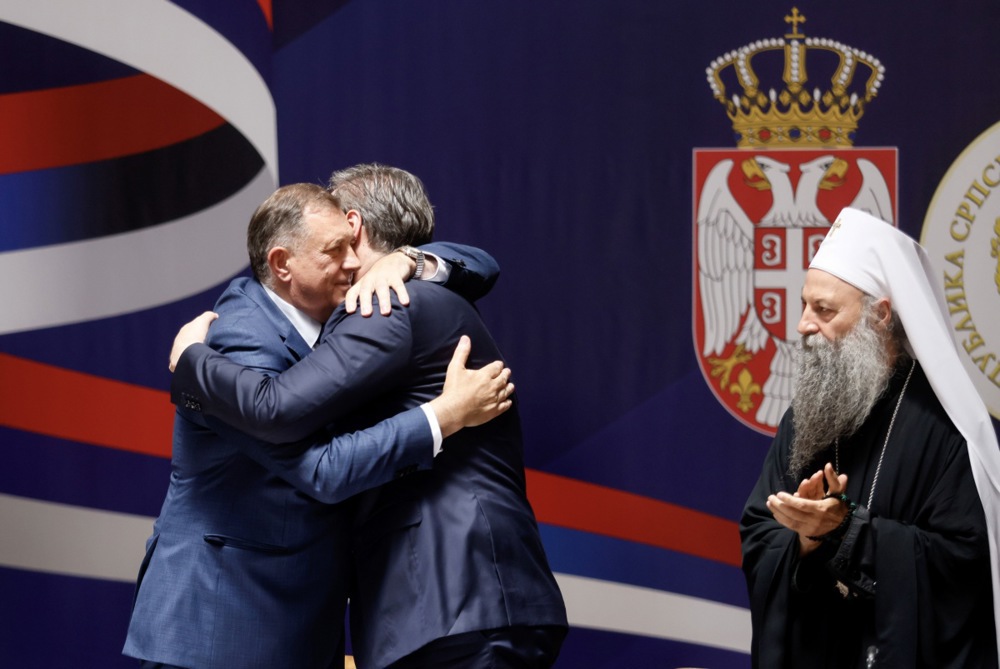
Republika Srpska changes the date of its ‘Statehood Day’
Balkan Insight
Bosnian Serb leader Milorad Dodik changed the day Republika Srpska marks its ‘Statehood Day,’ effectively acquiescing to the authority of Bosnian courts. For 32 years, Republika Srpska commemorated ‘Statehood Day’ on January 9, facing widespread condemnation for doing so. Critics noted that Republika Srpska is not a state and its founding on January 9, 1992, was a precursor to the war. Dodik announced that the ‘Statehood Day’ will be celebrated on February 15, coinciding with Serbia’s own national day. Analysts say Dodik de facto bowed to Bosnia’s Constitutional Court, which twice outlawed the January 9 celebration.
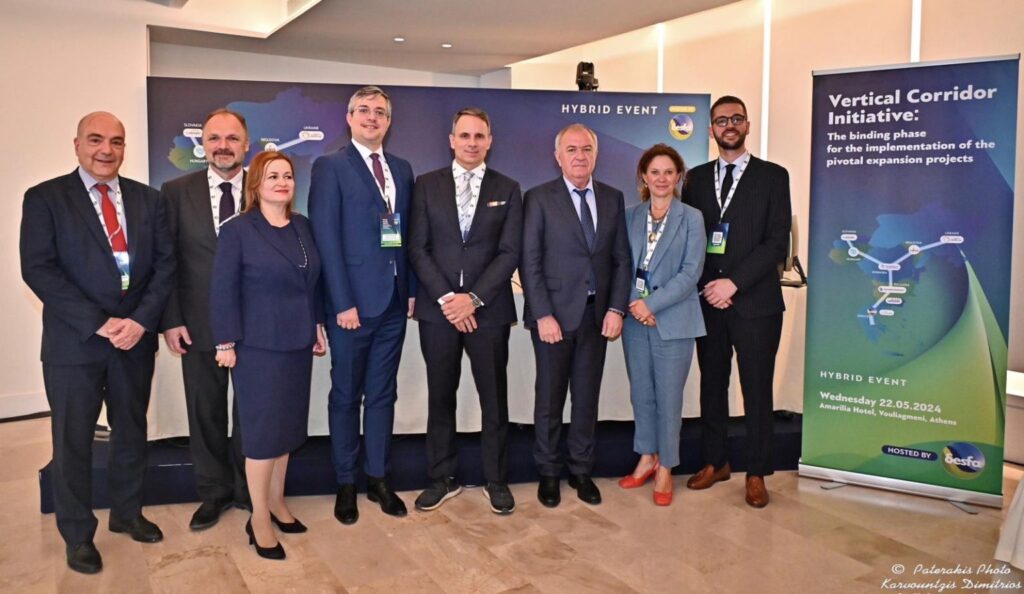
Bulgaria to start works on ‘Vertical Corridor’ for gas transport
Radio Free Europe
Bulgarian gas operator Bulgartransgaz signed contracts to start constructing the so-called ‘Vertical Corridor’ gas pipeline network. This important initiative aims to provide an alternative route for shipping gas from Greece to Bulgaria, Romania, Hungary, Slovakia, Moldova, and Ukraine, as well as in the opposite direction. It was designed to improve security and ensure diversity of gas transportation routes ahead of the expected suspension of Russian gas transit through Ukraine at the end of the year.
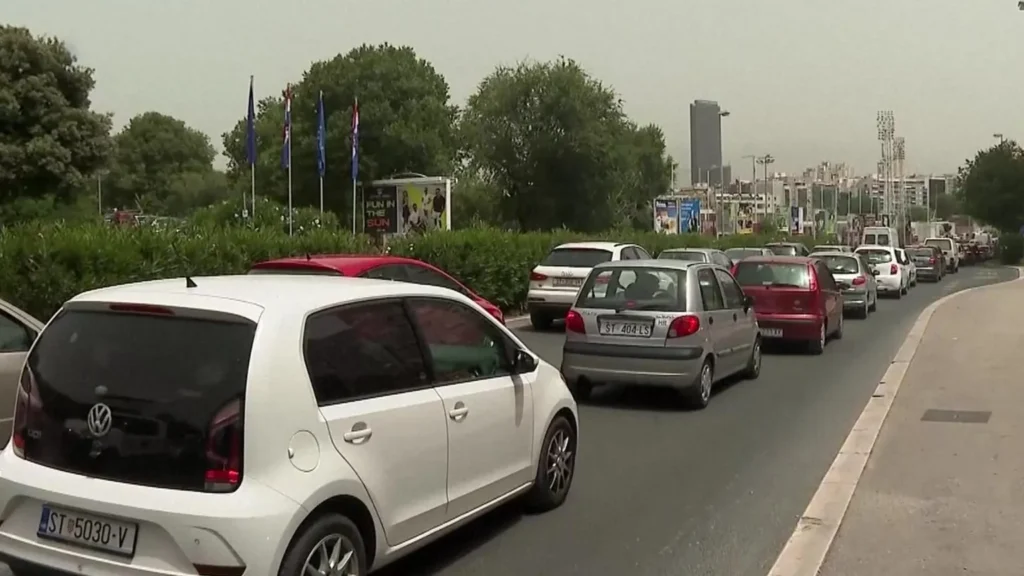
Half of Balkans hit by major blackout
BBC
Four Balkan countries suffered simultaneous power cuts lasting several hours in June amid a summer heatwave. Albania, Bosnia, Montenegro, and large areas of the Croatian coast experienced blackouts due to surging power demand, but also probably because of malfunctions in the obsolete grid. Montenegro’s Energy Minister Sasa Mujovic attributed the outages to a sudden increase in power consumption, while experts warned of the risks connected to region’s old and malfunction-prone electricity system.
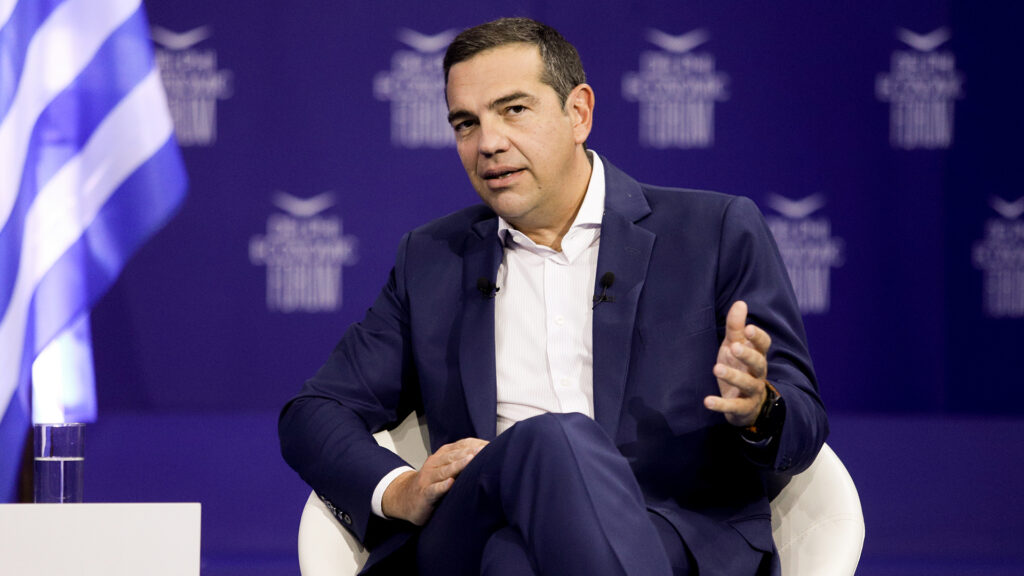
Tsipras and Zaev call for respect of the Prespa Agreement
Kathimerini
Former Syriza leader and former Greek Prime Minister Alexis Tsipras emphasised the strong safeguards and the importance of preserving the Prespa Agreement, between Greece and North Macedonia, during a discussion with former North Macedonia PM Zoran Zaev. Tsipras described the risk of non-implementation as “existential” for North Macedonia, stressing the necessity of “implementing and respecting the Constitution.” He warned that failure to do so could result in no European funds, consequences on NATO membership, and potential sanctions on individuals.

Russia interested in destabilising Bosnia-Herzegovina
Institute for the Study of War
The Institute for the Study of War (ISW) warned that the Kremlin and its affiliates continue to develop efforts to destabilise the Balkans through their relationship with Republika Srpska, the Serbian political entity in Bosnia and Herzegovina. To support its claims, the ISW noted the opening of an office of the Russian embassy in Banja Luka on the 11th of June. Meanwhile, Moscow claimed that ties between Russia and Republika Srpska are at an all-time high. Furthermore, a Kremlin-affiliated Russian blogger asserted Russia’s support for Republika Srpska’s independence and announced plans for opening a Russian ‘cultural’ centre. Moldovan and Ukrainian officials have warned that such centres promote Russian propaganda and undercover activities.
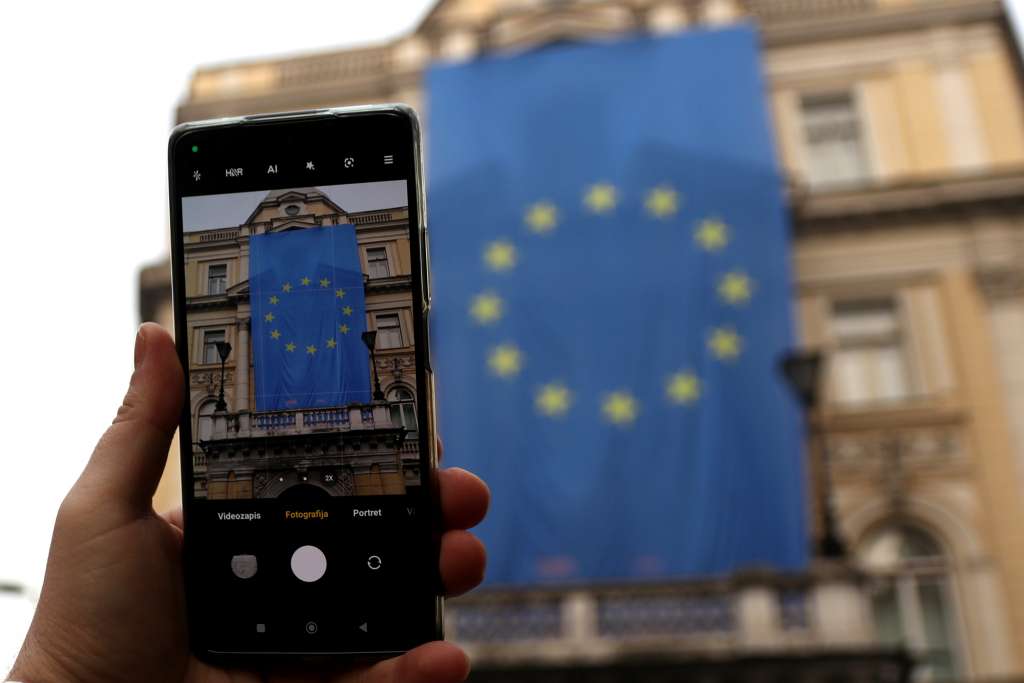
Fostering links with Putin “incompatible” with EU integration
Hina
Maintaining close relations with Russia’s President Vladimir Putin’s regime is incompatible with EU membership aspirations, stated Josep Borrell, the EU’s High Representative for Foreign and Security Policy. Borrell emphasised that Western Balkans countries must choose between joining the EU and maintaining ties with the Putin regime, as both are not compatible for a joint future with the EU. His remarks followed a meeting of EU foreign ministers, where Western Balkans Foreign ministers joined for discussions on aligning their policies with EU foreign and security policy, reported the Croatian news agency Hina.
The Insight Angle

Kristof Bender
is a seasoned analyst specialising in political economy and politics of Southeastern Europe, currently serving as the deputy chairman of the European Stability Initiative (ESI), a non-profit think-tank developing policy ideas supporting democracy, peace and human rights in Europe’s peripheries. He is also a board member of the Kosovo Civil Society Foundation, which promotes civil society in the country, and an alumni of the Europe’s Futures fellowship programme of the Institute for Human Sciences in Vienna. Bender has lived and worked in Bosnia and Herzegovina, North Macedonia, Montenegro and Serbia. Currently he is based in Vienna.
The European elections saw, in general, a confirmation of the previous major parties in the EU parliament, alongside a victory for conservatives in countries such as Slovenia, Croatia, Bulgaria, and Hungary. Despite being challenged by his new opponent, Peter Magyar, Viktor Orbán also managed to secure victory. Considering these results, do you expect any changes in the EU’s enlargement process and the EU’s attitude towards the Western Balkans, in particular during the Hungarian presidency of the EU?
The European Parliament is the most enlargement-friendly EU institution. This will not change despite the stronger performance of far-right parties. But it is the EU member states which primarily determine EU enlargement policy. I am therefore more concerned about expected strong gains for the far right in upcoming elections in France (results not yet in at the time of this interview) and Austria.
The problem for EU enlargement policy sits deeper, however. The enlargement process is stuck. It has lost most of its credibility over the last decade.
To reverse this trend and turn the accession process again into a reform engine which pushes countries to reform at an extraordinary scale and speed, we do not need the continuation of what we have been doing over the last years. We need change.
Meanwhile, the situation in the region appears to be getting more complicated, particularly in Bosnia-Herzegovina. Following the approval at UNGA of the ‘Srebrenica resolution,’ new threats emerged from Dodik, along with the ‘All-Serb meeting’ in Belgrade. Are you concerned about the stability of Bosnia-Herzegovina?
Yes, I am concerned, and not only about Bosnia-Herzegovina. The key question is: What can outside actors do to help foster democracy and push reforms? Usually, it’s less than we think. But there is one exception: the EU accession process. The ten former communist countries that became EU members in the 2000s were all transformed dramatically through this process. This worked because the EU provided substantive assistance and a very attractive goal – EU membership. The EU said: If a country meets all the tremendously ambitious EU standards, it will be admitted to the EU.
This promise does not stand any more. The EU, pushed by its member states, made the process so cumbersome that practically no one believes any more that attaining membership is possible. This undermines reformers and strengthens strongmen like Mr Dodik. In today’s environment those who say “Let’s undertake these demanding EU reforms” appear naïve. The best way to weaken politicians like Mr Dodik and strengthen pro-European reformers is to provide again an attractive, credible goal that countries can reach by their own efforts.
What about Kosovo? The issue of the dinar remains unresolved, Serbs are still out from the local institutions, and Belgrade and Pristina are not seriously engaging in dialogue at the Brussels table. Can we expect any breakthroughs in the coming months? What steps should the new EU executive take to finally compel Belgrade to negotiate a normalisation agreement, and what kind of agreement should it be?
I cannot imagine a breakthrough anytime soon. Currently there is no reason for Serbia to recognise Kosovo or even to implement the most recent Agreement which would include “de-facto” recognition. Kosovo has nothing to offer Serbia that would make such a step attractive. Nor has the EU, except one thing: EU membership. But currently, this prospect is very far away. It remains unclear if Serbia would be allowed to join even if it fulfilled all requirements.
Too many member states still oppose further enlargement. There is only one way around this dilemma. The EU should be honest and announce: “Full membership remains the goal, but we cannot promise that when the candidate countries are ready, we in the EU will be ready for enlargement as well. But we promise that once a country will have met all the membership criteria, we will at least admit this country to the Single Market, with full access to the four freedoms and EU funds.” Such an approach could run in parallel to the formal accession process, without being subject to constant vetoes by member states. It would provide a very attractive goal that is urgently required to re-energise the process.
Additionally, North Macedonia has entered a new phase, with the new conservative leadership openly disregarding the Prespa Agreement. Can we anticipate a new front of tension between Skopje, Athens, and Sofia?
North Macedonia has become an EU candidate in 2005, nearly 19 years ago. It still has not opened a single negotiation chapter, because it was continuously blocked, first by Greece, then – after the Prespa Agreement – by France, and since then by Bulgaria. The reasons had nothing to do with EU standards. Even if North Macedonia fulfilled Bulgaria’s current demands, there is no guarantee that Bulgaria would not add additional demands afterwards.
To step back from the Prespa Agreement is of course not conductive to progress. But it also does not really change North Macedonia’s situation, as it is blocked anyway. If politicians see that the vision of a better and more prosperous future as an EU member state is falling apart, they will look for another political narrative. In the Western Balkans, the fall-back-option is nationalism, including territorial claims towards neighbours. We know where all this led to in the 1990s. We are in a dangerous situation, in particular with regard to Kosovo and Bosnia. It’s in the EU’s power and interest to offer a positive narrative that fosters peace and prosperity. It is needed more than ever.
Finally, more than 20 years have passed since the Thessaloniki summit, and the region remains distant from the EU, while even Ukraine and Moldova are advancing faster in the integration process. Are you concerned that keeping the Balkans as an isolated ‘island’ separate from the bloc could lead to the situation getting out of control, especially considering the fragile state of democracy in countries like Serbia?
I am very concerned. I fear that Ukraine and Moldova will soon wake up the realities of today’s accession process, a process in which even countries that pursue reforms cannot move fast enough to maintain the required energy, stamina and determination.
In the Balkans such disillusionment is already advanced. After the wars of the 1990s, the EU has managed to provide a vision for a stable and prosperous future for the Western Balkans for two decades. It thereby made a huge contribution turning a region haunted by war and suffering into a very peaceful and promising post-conflict region. All this risks to unravel now. The lack of a clear reaction by the EU after Serbian paramilitaries invaded Kosovo in September 2023, might sound to some like an encouragement to try again. Violence in the Balkans is more likely today than any time over the last 20 years.
European leaders talking about a geopolitical Europe should to start here, in the EU’s periphery, where the EU has all the means to make a crucial difference. It has done so earlier; it can do so again.
The Key Story
Strategic trends
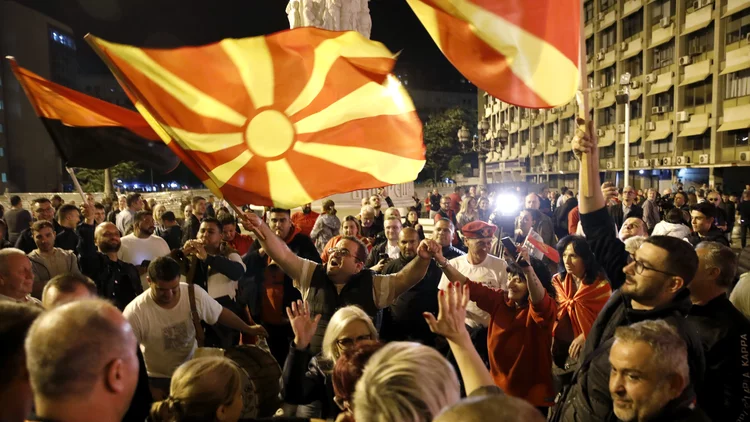
Nationalist VMRO-DPMNE party triggers a potential explosive crisis between North Macedonia, Greece and Bulgaria
As feared by many analysts and experts, the ascent of the nationalist VMRO-DPMNE party to power in North Macedonia is triggering a major new crisis in the Balkans, exacerbating tensions with Greece and Bulgaria and potentially undermining the EU integration process for the former Yugoslav republic, and historical deals as the Prespa Agreement (2018).
The most recent catalyst was the debate over the approval of the new centre-right government in North Macedonia, headed by VMRO-DPMNE party leader Hristijan Mickoski. During his speech in the Macedonian Parliament, Mickoski repeatedly declined to use the official designation “North Macedonia,” established by the Prespa’s Treaty six years ago.
The Prespa Agreement stands out as one of the most significant diplomatic successes in the Balkans in recent decades. This international treaty was designed to resolve the protracted name dispute between Greece and the Former Yugoslav Republic of Macedonia (FYROM), with Greece objecting to the use of the term “Macedonian” as it viewed this as an appropriation of its history and culture.
As a result of the agreement, FYROM changed its name to North Macedonia. In exchange, Greece recognised the new name and lifted its vetoes against North Macedonia’s membership in NATO and the European Union. The agreement was signed at Lake Prespa in 2018 by the then Prime Ministers of Greece and FYROM, Alexis Tsipras and Zoran Zaev, respectively. However, the deal faced harsh criticism from many nationalists in North Macedonia, particularly from the VMRO-DPMNE party, at the time in opposition. They viewed the agreement as a significant defeat for Skopje and a painful national humiliation.
With its return to power, the VMRO-DPMNE is poised to challenge the Prespa Agreement, likely precipitating a major crisis with Greece. North Macedonia’s new Prime Minister, Mickoski, during a parliamentary debate, described the inclusion of the designation “North” in the country’s constitutional name as “shameful.” Nonetheless, he used the country’s official name, Republic of North Macedonia, during his swearing-in oath. However, “I say that this designation, which I have to state during my swearing-in, is shameful, as it reminds me personally of the shame you have brought to my country, my family, and my unborn grandchildren and those who will come after them,” he stated.
“In any case, as long as I live, both politically and as a person, I will do everything in my power to right this injustice,” he promised. Earlier, upon taking office, the country’s new President, Gordana Siljanovska Davkova, also supported by VMRO-DPMNE, omitted the word “North” from her official oath in parliament.
Mickoski also warned that, under his government, there will be no constitutional amendments to protect the Bulgarian minority and include Bulgarians in the preamble as a constitutive people, as requested by neighbouring Bulgaria, which in 2020 blocked the start of EU accession talks for North Macedonia over another historical disputee between the two countries.
The positions of the new leadership in Skopje did not go unnoticed in Greece and in Bulgaria, with Athens and Sofia warning that they are prepared to block Skopje’s EU integration path if the new Macedonian leadership does not alter its course or changes tones. “The state and the political leadership of North Macedonia have chosen, systematically and persistently, not to use the country’s constitutional name in domestic public discourse. This constitutes a flagrant violation of the Prespa Agreement, which stipulates the uniform use of the unique name “North Macedonia” domestically and internationally,” Greece’s Foreign Affairs Minister George Gerapetritis said.
Bulgarian President Rumen Radev also criticised North Macedonia’s government for not being willing to recognise Bulgarians within its constitutional framework. He sees this as contrary to European values and has advocated in European forums for including Bulgarians in North Macedonia’s constitution, deeming it essential for EU membership talks. Bulgaria’s Foreign Ministry stated as well that North Macedonia’s new government is drifting away from beginning EU membership talks.
“The new leadership in North Macedonia at this junction should take a deep breath and take some time in quiet without making lots of statements to consider what their policies should be,” warned also Matthew Nimetz, mediator in the name dispute between Athens and Skopje for more than two decades. “Not only with respect to Greece but their other neighbors and with the EU and most important domestically. They won an impressive political victory but this support can easily be lost. An extreme nationalist agenda with rhetorical flourishes sounds good to political supporters for a short time. But reality sets in quickly.”
Amid ongoing crises in the region, particularly in Bosnia-Herzegovina and between Serbia and Kosovo, a new front of tension in the Balkans could further increase instability in the area. This escalation also threatens to undermine the European Union’s recent efforts to bring the region closer to the bloc, before full integration.
Further News and Views
Conservatives prevail in EU elections in the Balkans, Hungary
Sources: ANSA, STA, Balkan Insight
Centre-right and conservative parties largely prevailed, amid very low turnout, in the European elections held in EU member states in the Balkans and Hungary, with the exception of Romania, where a coalition between the Social Democrats and Liberals secured most of the votes.
In Slovenia, former Prime Minister Janez Jansa’s centre-right SDS (EPP) secured the most seats, winning four out of nine, while Prime Minister Robert Golob’s ruling Freedom Movement (Renew) came in a distant second with two seats. In Croatia, the ruling conservatives won half of the country’s EU Parliament seats. For the first time, Romania is sending far-right politicians from the party AUR to the European Parliament, but AUR’s lower-than-expected support gave mainstream parties, the Social Democrats and the Liberals, a sigh of relief, with the government coalition winning more than 50% of the vote.
In Bulgaria, the GERB party of former Prime Minister Boyko Borissov (EPP) won convincingly in both the early parliamentary elections and the European vote, but it didn’t secure a majority to rule in Sofia. Meanwhile, Hungarian Prime Minister Viktor Orbán’s Fidesz party won the European elections in Hungary, but it was the party’s lowest-ever EU election result as the opposition gained ground, with a new party formed by Peter Magyar winning around 30% of the votes.
Serbian ammunition worth 800 million ends up in Ukraine
Sources: Financial Times, Newsweek
Serbia discreetly increased ammunition sales to the West since 2022, indirectly bolstering Ukraine’s defence, despite being one of two European countries not imposing sanctions on Russia, the Financial Times revealed.
Estimates shared with the Financial Times indicated Serbia’s ammunition exports to Ukraine via third parties in the West, which then transferred the military equipment to Ukraine, amounted to about 800 million euros since Russia’s full-scale invasion in 2022, a sum President Aleksandar Vucic confirmed to the daily. He framed the sales as a business opportunity, stating that “this is a part of our economic revival and important for us. Yes, we do export our ammunition.” Vucic noted that Serbia signed contracts with Americans, Spaniards, and Czechs, emphasising, “What they do with that in the end is their job.”
A western diplomat highlighted efforts by Europe and the US, particularly US ambassador Christopher Hill, to distance Vucic from Putin. Kremlin spokesman Dmitry Peskov acknowledged Vucic’s statements and said, “We will deal with this topic in contacts with our Serbian friends,” according to Tass.
EU - NATO
Romania’s Iohannis gives up, Rutte to become new NATO Secretary General
Sources: Al Jazeera, Politico, Reuters
Romanian President Klaus Iohannis withdrew from the race to lead NATO, paving the way for Dutch Prime Minister Mark Rutte to become the next Secretary General of the political military alliance. Hungary, which had previously supported Iohannis, lifted its veto on Rutte’s candidacy after Rutte provided written guarantees that he would not force Budapest to support NATO’s new plans for aiding Ukraine.
Turkey also lifted its objections to Rutte’s bid in April. Following these developments, NATO’s 32 nations appointed Rutte as the alliance’s next head in June, a crucial role given the ongoing conflict in Ukraine and the approaching US elections.
Rutte will succeed Secretary General Jens Stoltenberg on October 1, after major powers, led by the United States, will finalise his nomination at a NATO summit in Washington. Current NATO’s head Stoltenberg welcomed Rutte’s appointment, praising him as a “true transatlanticist, a strong leader, and a consensus-builder”.
ECONOMICS
World Bank forecasts stronger growth in the Balkans
Sources: World Bank, SeeNews
Growth in the Western Balkans is forecast to rebound to 3,2% in 2024, 3,5% in 2025, and 3,8% in 2026, according to a new report of the World Bank published this month.
Private demand is expected to be the main driver of growth, with weak net exports having less impact than in 2023 due to a pickup in exports alongside the euro area’s recovery, the financial institution said.
The new European Union growth plan for the subregion will enhance economic integration and boost socio-economic convergence, the World Bank also noted.
The strongest economy in the region, Serbia, is projected to accelerate significantly, with the World Bank expecting 3,5% growth in 2024, 3,8% in 2025, and 4,0% in 2026. Bosnia’s economic growth is also projected to accelerate to 3,3% in 2025, up from an estimated 1,7% in 2023, according to the World Bank.

Stefano Giantin
Journalist based in the Balkans since 2005, he covers Central- and Eastern Europe for a wide range of media outlets, including the Italian national news agency ANSA, and the dailies La Stampa and Il Piccolo.

